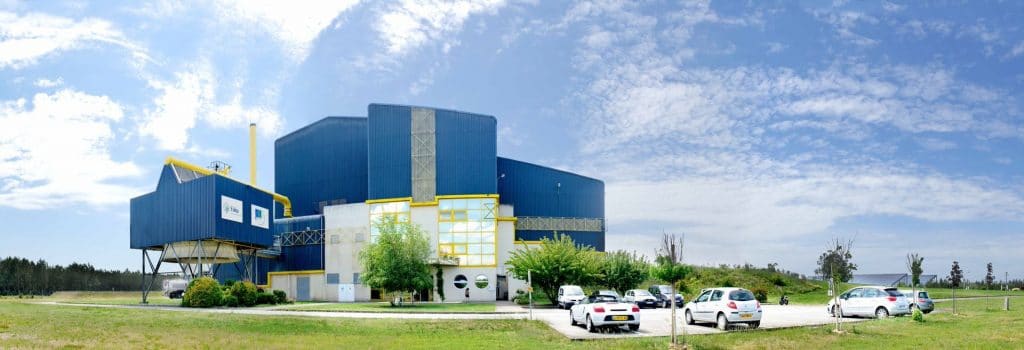Pontenx-les-Forges: an incinerator that helps tomatoes grow!

In Pontenx-les-Forges, France, the energy recovery unit (ERU) operated by Tiru, a subsidiary of Paprec Energies, directly supplies renewable energy to an environmentally friendly greenhouse where tomatoes are grown.
“This energy recovery unit provides 80% of the energy needed to heat the greenhouse”
The waste heat recovery unit in Pontenx-les-Forges, France, makes it possible to grow tomatoes in a more environmentally friendly greenhouse. The heat created from waste combustion at the ERU (Energy Recovery Unit) provides 80% of the energy needed to heat the Les Grands Lacs greenhouse where tomatoes are grown only one kilometre from the ERU in Parentis-en-Born. The waste processed at the ERU produces steam, which is then fed into an underground heat network. “This is equivalent to 42,000 MWh of energy,” explained Alain Cribeillet, director of the Pontenx-les-Forges site. “And let’s not forget the 15,000 MWh of electricity that is produced in parallel.”
This project is a collaboration between Tiru, a subsidiary of Paprec Energies, and the agricultural cooperative Tom d’Aqui, which operates the greenhouse. These joints efforts made it possible for the site, owned by the Born multi-purpose municipal group, to triple its renewable energy production since 2015.
A responsible approach to more environmentally friendly tomato farming
The plant processes 42,000 tonnes of household waste every year, collected from 35,000 residents living in 16 towns in the north of the Landes department of France. “Today, all of the heat is recovered, allowing the ERU (Energy Recovery Unit) in Pontenx-les-Forges to improve its energy performance from 34 to 80%, all while supplying renewable energy to the greenhouse”, noted Éric Soules, President of the Born multi-purpose municipal group. “This is a locally operated, circular process that is extremely beneficial for the surrounding areas.”
Thanks to this system, the temperature of the greenhouse is controlled, allowing 7,000 tonnes of tomatoes to be grown every year. “Heat is essential to limiting humidity and preventing crop diseases in our eco-friendly greenhouse. The climate in greenhouses is more stable, which means pesticides are no longer needed. We simply use beneficial insects for natural pest control,” added Toby Wright, technical director of the Les Grands Lacs greenhouse and co-founder of the cooperative. “By using this energy source to heat the greenhouse, we minimise our carbon impact, which has dropped to 0.1 tonnes of CO2 per tonne of tomatoes sold,” he concluded.
